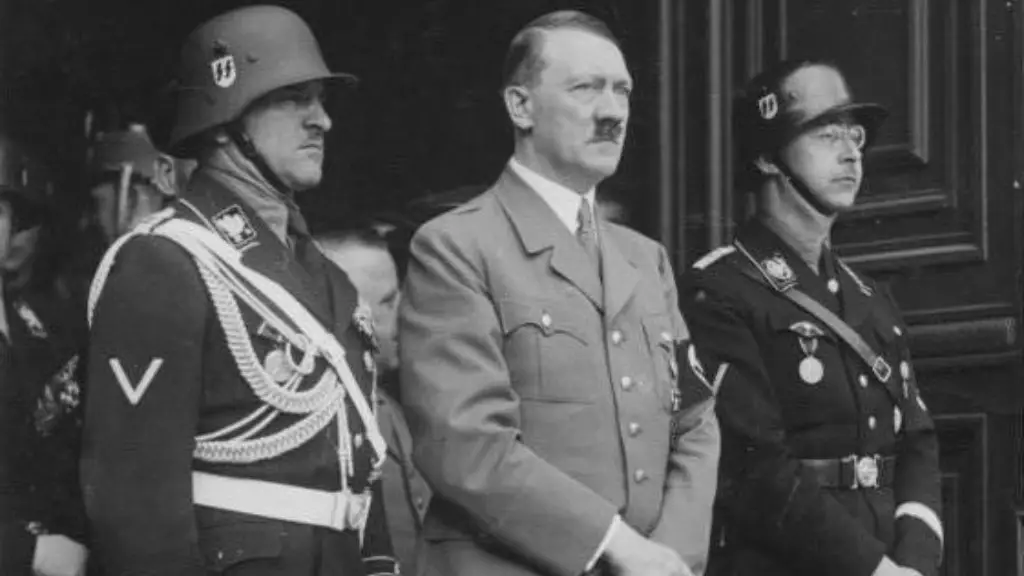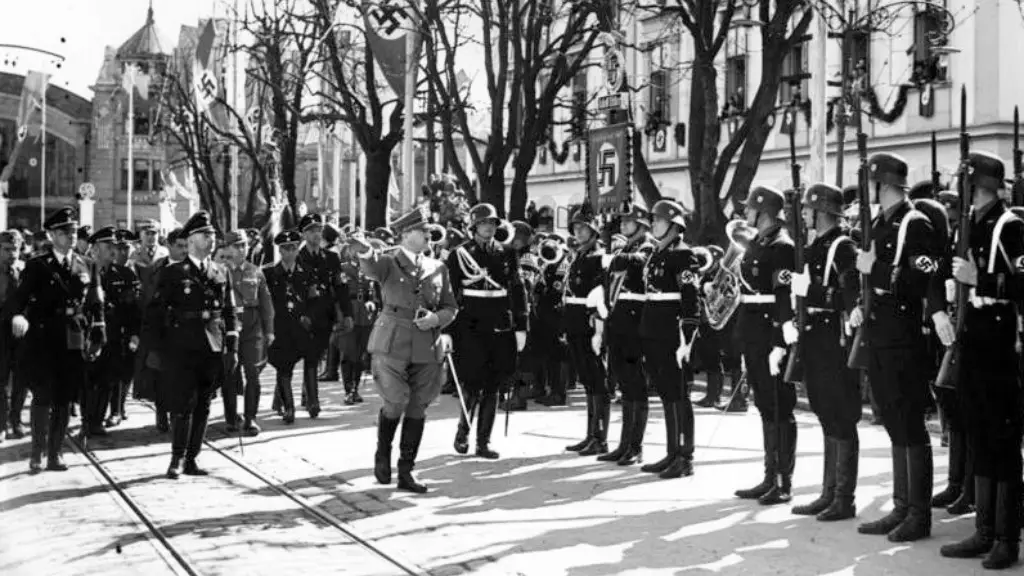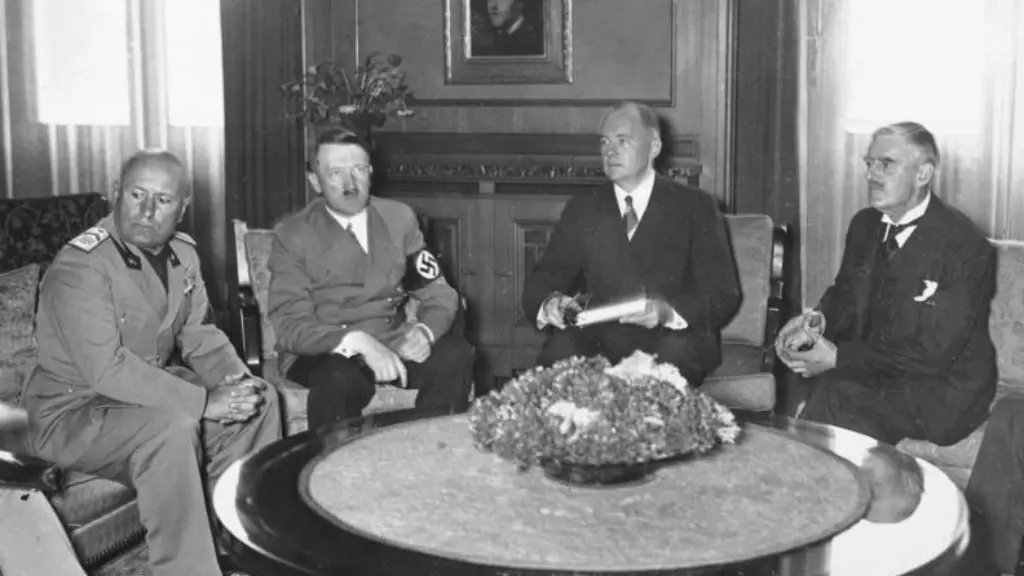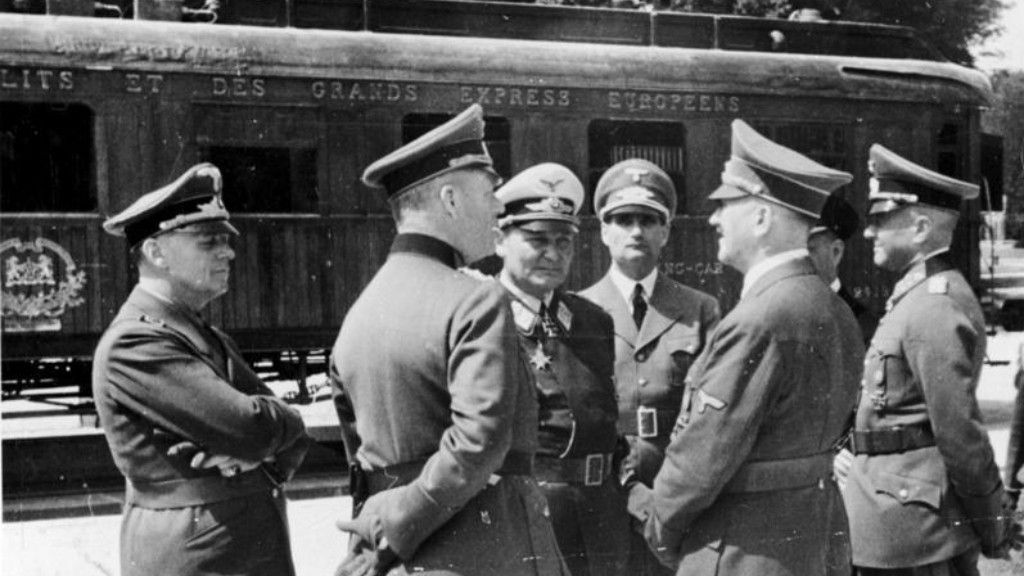Adolf Hitler’s book, Mein Kampf, is notorious in its infamy as his semi-autobiographical manifesto. Its contents are shocking, as Hitler lays out his ideologies, favored methods, and philosophy of racial superiority and totalitarian rule. Written in two volumes between 1925 and 1926, the book is an insight into the mind of the man who inspired one of the darkest periods in human history.
The book paints a vivid picture of Hitler’s anti-Semitic and anti-democratic views. Hitler makes near-constant reference to the notion of a German people racially superior to all others, and goes to great lengths to cast Jews as the villainous oppressors of the “Aryan” Volk. He also speaks frequently of Lebensraum — living space — for the German race, and prophesies a gleaming new empire to be founded upon the exclusion or subjugation of all undesirable ethnic minorities.
Hitler’s justification for Lebensraum is not without its own logic. To him, it operated as a mechanism of self-defense, a way to battle against the supposedly hostile elements living in Germany. It was Hitler’s mission to establish policies of fear and mistrust to ensure the racial hygiene of the nation granted him power via an elected majority.
Mein Kampf has long since been out of print. Indeed, its sale has been banned in Germany since 1945. Despite its history and the damage it has caused, there is still dispute over its ownership: the Bavarian government holds the copyright to the book but refuses to allow its commercialization. Despite this, it is still relatively easy to find copies outside of Germany.
In recent years, the book’s relevance has been improved by a resurgence of far-right ideology worldwide. It has since been studied as an essential foundational text to academic researchers seeking to make sense of Nazi ideology, and to provide psychological clarity on the writings of the man who brought the world to the brink of destruction.
This resurgence has been met with vocal opposition, however. At its peak, Mein Kampf contained radical, disturbing ideas that remain unsettling even today. Its re-publications face accusations of spreading propaganda and inspiring fear. Nonetheless, its presence on bookstore shelves allows access to readers who, until recently, have never had to chance to even consider what the book presents.
Effects On Society
Hitler’s writings, most notably Mein Kampf, had far-reaching effects on modern society. The emphasis of Aryan superiority and German dominance was a catalyst for World War II. His words ultimately led to countless deaths, and a national trauma that Germany is still trying to recover from.
The book was instrumental in influencing the National Socialist German Workers’ Party and third Reich. Hitler resorted to violence, oppression, and terror to achieve his goals. His actions were documented in history and turned out to be the darkest and most tragic. Today, any regime based on Hitler’s ideals is condemned and outlawed.
Mein Kampf is believed to be one of the main sources of Nazi ideology and radicalism, as it serves as a fundamental basis for the Nazi platform. This includes the pursuit of the “Final Solution” — the policy of mass extermination of Jews, along with other undesirables like homosexual people, Roma, Sinti, political dissidents, and others.
The book’s casual, conversational tone has been seen by some as attempting to legitimize its ideas — as if to make them more palatable by making them palatable to the everyday reader. Though its sale has been banned from Germany, allowing sale outside of Germany contributes to the promotion of white nationalist and neo-Nazi ideologies all around the world.
Popularity In Modern Society
Despite attempts to ban the book contribute to its sale and reading worldwide, studies show that the book and its sales are on the decline. In fact, it is estimated that around one per cent of all books bought by Germans today are works from Hitler.
However, one could argue that the impact of the book has not diminished. The words of the author are still visible in many forms, predominantly throughout neo-Nazi and white nationalist organizations. Public references and interpretations of Mein Kampf still occur in polls, literature and social media, which has become a platform for those who support and follow Hitler’s ideas.
Despite its continued presence, the message conveyed by Mein Kampf should not be forgotten. As it is a book that has caused damage throughout history, its readers must be aware of the consequences before continuing on. In this way, it can be said that although the book continues to be relevant in modern society, it is important to remember that this was the work of a dangerous, genocidal dictator, and its consequences remain.
Analysis
At its core, Mein Kampf represents a window into the motivations, ideologies and worldviews of Adolf Hitler. From its pages, readers can see the attitudes, beliefs, and values that energized the Nazi movement. As an illuminating document of a cruel, dangerous man, it deserves to be read with caution but studied nonetheless.
On its own, however, Mein Kampf does not carry the same weight as it did when it was first published. Reading the book must come with a thorough understanding of the context surrounding it. Hitler’s 1933 ascension to power, then his war-mongering and invasion of Poland, need to be taken into account to prevent any misunderstanding of the importance of the readings.
In this way, it can be argued that although Mein Kampf stands as the embodiment of Nazi ideology, its influence has been significantly minimized over time. This is apparent in its decreasing appeal and availability in the public sphere, as well as in the decreased following of organizations inspired by its contents.
Ultimately, as a controversial book with such a dark history, Mein Kampf should be treated with caution. Its presence must be carefully monitored due to its potential to inspire ideologies that have caused untold suffering throughout history. It is only when given a thorough understanding and analysis, however, that its true message can be understood and the grave consequences of its words can be avoided.
Legacy
Mein Kampf stands as a tragic testament to the damage that one man’s words can cause. It represents a legacy of bigotry, xenophobia, and white supremacy, and serves to remind us of the dangers of unchecked power. As a result, it is essential that today’s readers approach the book with an open mind, and take the time to consider its message and how it relates to the modern world.
The book can be seen as a lesson, cautioning readers against dismissing the potential of extremism and its inevitable consequences. In this way, Mein Kampf serves as a reminder of the importance of a world that is tolerant and inclusive and the necessity of ensuring the greatest possible freedom to all of its citizens.
Finally, it is important to recognize that any evils perpetuated in the name of Nazi ideology have no place in modern society. It is the responsibility of current and future generations to ensure that this ideology remains confined to the pages of Mein Kampf and to ensure that the world instead takes its lead from the more constructive and progressive values found elsewhere.
Controversy
Due to its shocking subject material, Mein Kampf has been surrounded by controversy. Though the book has inspired hatred and violence in the past, it has also inspired many debates over its place in the public library and discussion.
Questions have been raised about whether the book should be studied, or banned and forbidden. Some believe that its contents should not be allowed to be accessible for potential gains by neo-nazi groups and white supremacists. Others believe that knowledge of Hitler and his ideologies should be shared so that its horrific nature will not be forgotten.
In either case, it is clear that the book’s legacy extends far beyond its pages. Its violence and totalitarian ideologies remain a warning to this day and should be considered when discussing the potential for extremist ideas to return in the future.
The legacy of the book can be seen not just in debates among academics, but in various media representations of its contents. Movies, plays, documentaries and books have all tried to shed light both on the horrors unleashed by its message, as well as its relevance to modern politics and ideologies.
The book has also been used as a symbol of neo-nazi ideology, with its contents being amended and reinterpreted to fit into present-day far right rhetoric. In this way, Mein Kampf serves as a constant reminder of the dangers posed by such violent, supremacist views.
Conclusion
Though its existence is often fiercely debated, there is no question that Mein Kampf is responsible for millions of lives lost and irrevocable damage caused to people and their culture. At its core, Mein Kampf serves as a reminder of the power of words and the devastating potential of extremist and bigoted ideology to still cause catastrophic repercussions.
Ultimately, the book is a historic document, and it is essential that we use it to our advantage. We must take from it both the warning of the dangers of prejudice and the understanding of the true power of both words and ideas.





